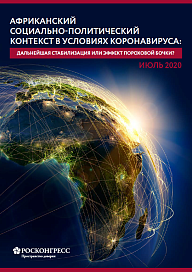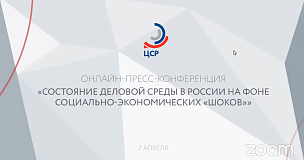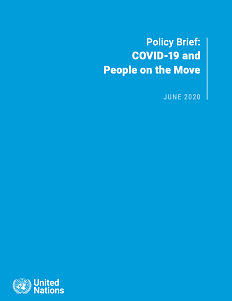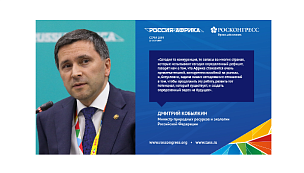The Roscongress Foundation experts prepared a study on the impact that the COVID-19 pandemic has on the African continent. The study addresses just how the active spread of the coronavirus is changing the contours of the African socio-political context, including economic measures used by the African states in the context of the spread of COVID-19; restrictions in the African states, as well as reaction of the population to them; the growing anti-Chinese and anti-Western sentiment; traditional public healthcare; the struggle against misinformation on the continent; and politicization of the coronavirus.
The Roscongress Foundation analysts have highlighted the key points of the study, attaching to each one the relevant fragment of a video broadcast of panel discussions that took place as part of business programmes of key events held by the Foundation.
Africa is home to around 17% of the global population and carries 23% of the global burden of disease; however, in 2015 it only accounted for 1% of the global healthcare expenses.
The rest of the world spends 10 times more on healthcare per capita. The 2016 Rand study concluded that 22 of the 25 countries most vulnerable to infectious diseases are in Africa.
The governments of African states have implemented measures for economic support of their citizens and businesses, as well as for mitigating the negative impact of the spread of the coronavirus pandemic.
According to the recent PERC (Partnership for Evidence Based Response to COVID-19) report summarising results of the survey conducted from 17 March to 29 April in 20 states—members of the African Union, most respondents stated that overall they trust the actions of their governments; however, the level of trust is correlated to the age of the respondents (61% among respondents between the ages of 18 to 25 and 74% among respondents over 46). Population support packages as part of counteracting the economic impact of the pandemic were perceived with special approval.
Video: roscongress.org/sessions/africa-2019-sozdavaya-novoe-kachestvo-zhizni-v-afrike-/search/#00:31:25.696
According to the system of tracking civil liberties in the context of COVID-19 of the International Center for Not-for-Profit Law (ICNL), altogether there were 28 states of healthcare emergency or healthcare emergency situations recorded in the countries of Africa.
It is impossible to look into the effectiveness of quarantine measures in the African states without addressing certain special socio-economic contours of the African continent. First of all, it is the informal nature of the economy with numerous small businesses. Small and medium businesses account for 80% of all jobs in Africa (for comparison, in Europe a similar index is 50% and in USA — 60%). Small businesses in Africa cannot provide full-scale remote work for their employees; which, among others, is aggravated by unstable electricity supply in many regions of the country. Besides, most workers in the region work in an informal sector of the economy and thus do not have such benefits as medical insurance, unemployment insurance, or paid holiday. Suspending work, even for a few days, simply puts their survival in jeopardy because, in most cases, one of the features of the informal sector of the economy is daily pay. Half of the respondents of the survey conducted in 28 African cities stated that they will run out of money and food if they stay at home for 14 days. For households with the lowest incomes, this will take place in less than a week.
The coronavirus pandemic and restrictions related to it have brought about additional difficulties with regard to food security on the African continent.
Executive Director of the United Nations World Food Programme David Beasley has already stated that the coronavirus pandemic has become the worst humanitarian crisis since World War II. According to the UN information, the number of people who need food may grow from 130 million to 265 million in 2020.
By no means all populations of the African states have reacted positively to restrictive measures.
What became the key factor was that not all African states have created an effective dialogue between its population and executive government, as a result of which the African continent became one of the epicentres of mass conflicts resulting from quarantine measures. Some of the most popular motives for violent protests include restrictions on religious practices, reaction to aggression of law enforcement employees, and restrictions on travel. Africa is the world leader in the number of people who attend religious services daily. This number reaches 82% in Uganda and Ethiopia with a record of 89% in Nigeria. Because of that, the reaction of population to social distancing measures introduced in some African states turned out to be intense. In these circumstances, the key factor that will determine the level of the pandemic spread on the continent will be the effectiveness of communication between religious leaders and representatives of the executive governments.
At the height of the global struggle against COVID-19, the relations have grown tense in the most unexpected direction: between China and Africa.
Posts and discussions in the social media about eviction and abuse of Africans in the Chinese city of Guangzhou have gone viral as of 8 April, which lead to a series of official diplomatic protests by the African Union against China. Anti-European sentiment should also be noted among certain population strata, which often turns into spirited slogans about ‘coronization’ of the African continent.
Video: roscongress.org/sessions/africa-2019-investitsii-v-afriku-/search/#01:25:00.288
Traditional medicine also plays a significant role in the African society.
According to recent studies, 80% of the African population still rely on medicinal plants as part of health care. Despite the fact that awareness of COVID-19 and its symptoms is wide-spread (the overall level of awareness is 98%), the percentage of those who believe certain misconceptions popular on the continent, such as effectiveness of treatment by vitamin C, as well as the ability of the hot climate to withstand the epidemic, remains significant.
The potential for new political conflicts in the midst of the pandemic is still very high. It is also obvious that the COVID-19 card will be actively played as part of further struggle among political opponents on the continent.
In several African states the opposition scored quickly following insufficient timeliness or effectiveness of the measures taken by the Governments. The epidemic gives an opportunity to the current leaders to strengthen their positions, to delay elections, or to ban unscheduled street protests on the grounds of public safety. African leaders can also use the COVID-19 epidemic and restrictions on mass gatherings related to it for the purposes of putting down possible protests. There is also a significant risk that COVID-19 can cause political instability in a much more direct way by simply taking out major political leaders and creating a dangerous vacuum of power. Nor have illegal militant groups and radical political and religious movements passed by the opportunity to use COVID-19 in their range of tools.
Video: roscongress.org/sessions/africa-2019-bezopasnaya-afrika/search/#00:16:27.391
We also suggest that you read other materials posted in the special sections of the Roscongress Foundation Information and Analytical System: COVID-19 , StayHomeEconomy and Globalization/regionalization about response measures to the coronavirus epidemic and possible ways to stabilise the economy in the context of the pandemic, as well as the issues on the global and regional agendas.






